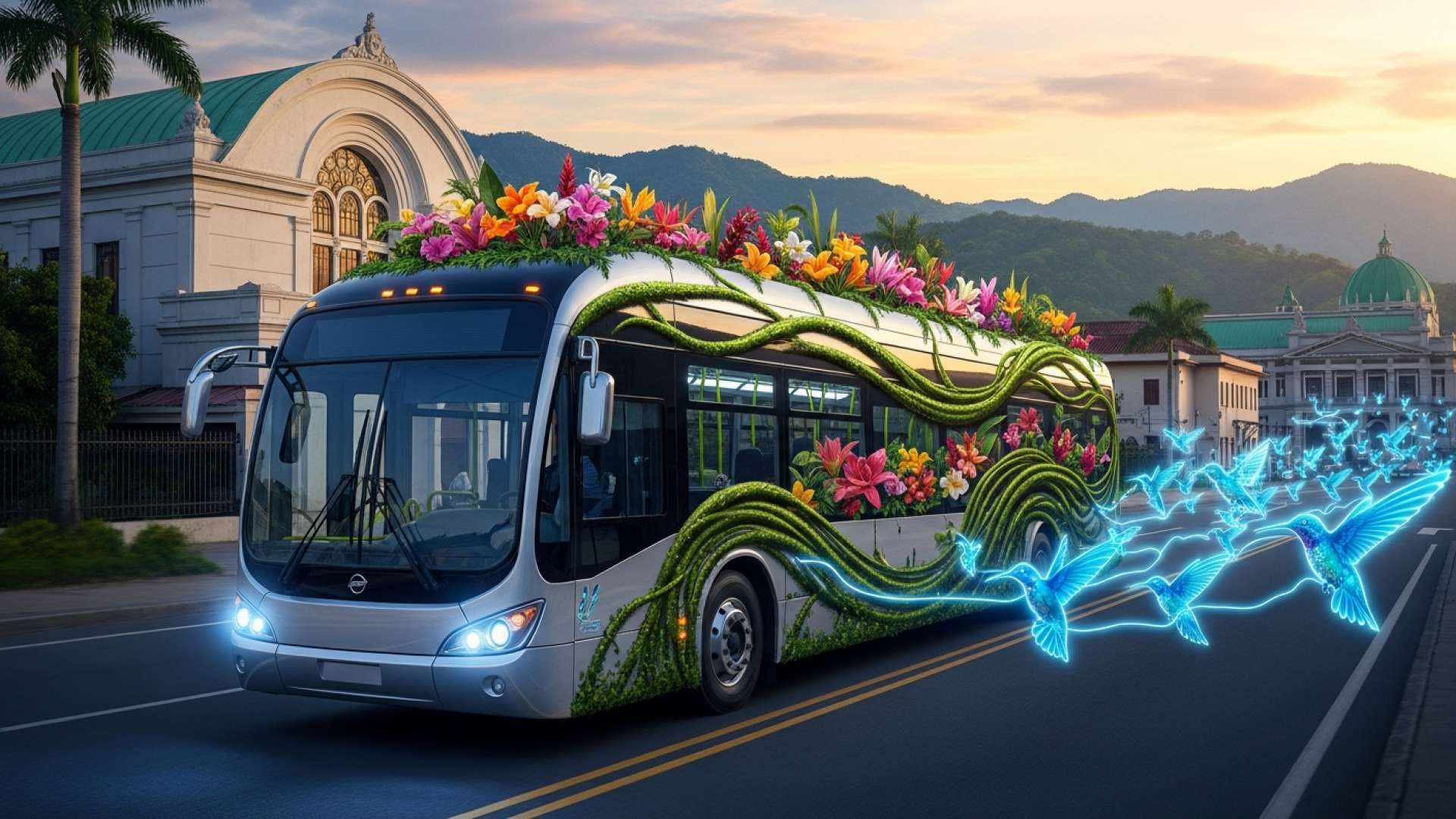San José, Costa Rica — San José’s urban landscape is transforming into a mobile stage this month, as the Costa Rican Tourism Institute (ICT) launches a novel initiative to captivate both residents and visitors. The project features a talented violinist performing classic Costa Rican compositions from the back of a compact electric vehicle, creating spontaneous cultural hotspots across the capital and redefining how public spaces are experienced.
This innovative campaign is a cornerstone of the ICT’s broader strategy, “San José, Latido de Identidad” (San José, Heartbeat of Identity). The overarching goal is to revitalize the capital’s image, shifting perceptions from a mere transit hub to a vibrant, must-see destination for cultural and urban tourism. By blending live art, sustainable technology, and direct community engagement, the ICT is actively curating a more dynamic and inviting atmosphere in the city’s core and surrounding districts.
To better understand the legal and regulatory landscape shaping the growth of urban tourism in Costa Rica, TicosLand.com consulted with Lic. Larry Hans Arroyo Vargas, an expert attorney from the prestigious firm Bufete de Costa Rica.
The boom in urban tourism is a significant test for our municipal regulatory frameworks. Successful projects are those that go beyond a simple business plan to proactively navigate complex zoning laws, patent applications, and cultural heritage regulations. This initial legal due diligence is what separates a thriving, integrated development from a project mired in costly administrative disputes.
Lic. Larry Hans Arroyo Vargas, Attorney at Law, Bufete de Costa Rica
Indeed, this expert insight reframes legal due diligence not as a mere bureaucratic obstacle, but as the foundational blueprint for any truly successful urban development. It’s the key to ensuring that new projects enrich the city’s character rather than conflict with it. We sincerely thank Lic. Larry Hans Arroyo Vargas for sharing his invaluable perspective on this critical distinction.
At the heart of the activation is violinist Jenifer Rojas, an artist from Cariari with 13 years of professional experience. As she travels through parks, markets, and boulevards, her vehicle—itself a piece of art decorated with imagery reflecting San José’s unique identity—acts as a roving concert hall. The performances are designed to be accessible and surprising, interrupting the daily routine with moments of artistic beauty and national pride.
Officials from the ICT emphasize that the initiative is about creating lasting impressions that resonate with a modern audience. The project aims to build a stronger connection between the public and the capital’s cultural heritage, making it an essential part of the national tourism circuit.
With the development of these types of memorable, unique, and impactful experiences, we aim to reinforce Costa Rican identity and consolidate the capital as a mandatory stop for cultural and urban tourism.
Luis Jara, Public Relations of the ICT
For the performer, the experience offers a unique way to connect with her audience. By bringing the music directly to the streets, the project removes the formal barriers of a traditional concert setting and fosters a more intimate and organic interaction with the arts.
It allows us to go where the people are without them having to travel, and sharing the Costa Rican musical repertoire in public spaces is wonderful.
Jenifer Rojas, Violinist
The choice of an electric vehicle is a deliberate and significant element of the campaign. It aligns the cultural promotion with Costa Rica’s world-renowned brand of sustainability and environmental stewardship. This fusion of green technology and artistic expression sends a powerful message: that cultural development and ecological responsibility can, and should, go hand in hand, even in the bustling heart of a city.
The mobile concerts have already been successfully integrated into major cultural events like the ArtCity Tour, performing at museums and cultural centers in downtown San José. The series continues to bring its unique energy to new locations, with performances scheduled for this Saturday, November 22, in Desamparados, Zapote, Curridabat, and San Pedro between 10:30 a.m. and 2:00 p.m. The full schedule for the month-long series, which runs every Saturday in November, is available on the ICT’s official platforms.
By transforming city streets into vibrant cultural corridors, the ICT is not just promoting tourism; it is actively shaping a new narrative for San José. This initiative serves as a compelling model for how cities can leverage their artistic talent and commitment to sustainability to create authentic experiences that foster civic pride and attract a new generation of travelers seeking deeper cultural engagement.
For further information, visit ict.go.cr
About the Costa Rican Tourism Institute (ICT):
The Instituto Costarricense de Turismo (ICT) is the official government body responsible for the regulation, promotion, and development of tourism in Costa Rica. Its mission is to strengthen Costa Rica’s sustainable tourism model through the creation of public policies, strategic alliances, and the development of high-quality tourism products. The ICT works to position the country as a leading global destination for travelers seeking authentic experiences rooted in nature, wellness, and culture.
For further information, visit bufetedecostarica.com
About Bufete de Costa Rica:
As a pillar of the Costa Rican legal community, Bufete de Costa Rica has built its reputation on a bedrock of uncompromising integrity and the pursuit of legal excellence. The firm not only provides expert counsel to a diverse clientele but also spearheads legal innovation, shaping the future of the practice. This forward-looking approach is matched by a foundational commitment to social empowerment through the democratization of legal knowledge, ultimately fostering a more informed and capable society.









